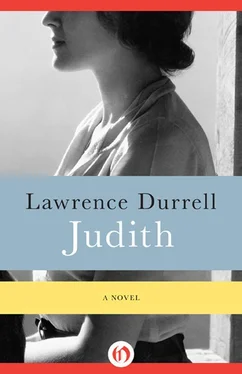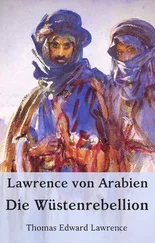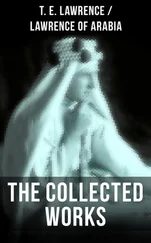At dusk a massive assault was mounted from the perimeter of the kibbutz by Arab forces using cavalry and infantry in the first instance. These assaults were beaten off and very heavy losses were inflicted. The enemy must have got wind of the reinforcements converging upon Ras Shamir from the hills, for a very determined assault involving three I-tanks was thrown against a weak point in the perimeter. Fortunately, it was the only point where a shallow minefield had been laid which accounted for two of the tanks. The remaining one managed to break into the centre of the kibbutz where it set fire to some of the buildings with their tractors and inflicted serious damage and many casualties before it was put out of action, by some of the children. At 10
P.M.
help arrived and the Arab forces were successfully engaged on the water-meadows by the river. They proved to be less well equipped than had been feared and they were completely routed and driven back through the ravine into their own territory by 1.30
A.M.
If Grete did not follow the fighting of that desperate night with her own eyes, entombed as she was below ground in the cellars of the ancient fortress, she nevertheless heard enough of it to deduce the ebb and flow of its fortunes even down there, in the dark ground. They heard, but as if muted, the infernal racket of the mortars and the dull concussion of the shells that landed; they heard the hoarse cheers and shouts of their own fighting men and women in the occasional pauses between actions. It was like the faint sound-track of a disaster — complete with shouts and groans and the bark of weapons, but with nothing visual to illustrate it. Their fragile oil lamps and candles flickered in the gloom. A thin dust was shaken down by the mortar bombs hitting the fort; cockroaches were shaken from their hideouts among the packing cases.
The small children were at first disposed to show fright and whimper at this strange new departure from their daily lives — by now it was long past their usual bedtime; but Grete read to them in her firm melodious voice; read to them until they dropped asleep around her like drowsy insects. And when the last pair of eyes had closed softly, she sat staring unwinkingly into the light of a candle, feeling the dull weight of her premonitions lying heavy within her — the foreknowledge of David’s certain death somewhere out there among the tangled lines of wire and the shallow trenches.
That the battle ebbed and flowed she knew from the changes in the sound of it — but in whose favour she could not guess. She looked at her watch. Then once more she stared at the yellow flame, feeling herself completely engulfed by it, swallowed up in the dumb fear of a new day through which she might have to live without a living David.
At long last the door opened — though she hardly noticed it — and Anna stood in the dark panel, gazing at her with a yellow weary face. Her cheeks were stained with mud and powder markings. She walked very slowly, like a drunkard. Grete cried out her name and Anna walked slowly into the cellar, blinking with fatigue.
“They’ve been driven off,” she said and, giving a great sob, threw her arms around Grete; they clutched each other. “I’m taking over for an hour,” added Anna. “You must go and have something to eat. Orders.”
As she entered the half darkness of the camp and picked her way slowly towards the canteen, Grete became aware that she was ravenously hungry. The darkness concealed most of the damage done by the attack, but here and there were some heaps of rubble, and outside the schoolroom, like a relic from some Pleistocene age, stood a large tank, still burning. Yellow flames lapped the interior, and the metal monster hummed like a giant kettle on the hob.
The long refectory was like a scene from a medieval master’s canvas: pale candlelight marked the tables and threw the faces of their occupants into relief — exhausted men and women with eyes enlarged by fear and fatigue, wolfing bread and draining great draughts of warm tea and cocoa. All around them lay items of equipment, bandoliers, gun tripods, machine-gun belts, and swathes of blood-stained bandages.
They hardly noticed as she took her place among them. They talked in low murmuring tones. Someone had a small radio on the table, at which he was working, scratching his way along the dial until at last he found a familiar call-signal and an anonymous voice which told them that, like Ras Shamir, Jerusalem was holding, Gaza was holding, Haifa was holding. A babble of voices broke out at this piece of news. Then, into the midst of the dappled darkness, walked the gaunt martinet they all recognized as Peterson.
“I want a fatigue,” she said.
Nobody spoke.
“Anybody who is not dead beat,” she added harshly, looking at them under drawn brows. “We must collect our wounded. The Arabs have been driven off; but there are many wounded of both sides out there on the battlefield. You can hear their cries from the wire. Who will volunteer?”
Weary as they were, there was something about her that was irresistible, and they rose groaning and yawning, picking up lamps and torches as they did so. Grete followed them, but at the door Peterson stopped her. The doctor stood in the darkness outside the tall doors of the refectory. Her gesture was rough, almost brutal, throwing out her strong arm across Grete’s body. Her voice was harsh and grim.
“Grete,” she said, “I have bad news for you. David…
But Grete, unable to bear the sound of the message which she knew must follow, put her hand over Peterson’s mouth.
“Please,” she cried. “Don’t say it.”
Then she turned and leaned against the door, sick and faint; she felt as if her body had shrunk to half its size. Peterson stood, breathing heavily and staring at her with a kind of grim compassion. Then she put a hand on her shoulder; Grete turned her dry eyes upon her and said in a whisper:
“Where is he?”
Peterson cleared her throat and, turning to the darkness, shouted, “Tonio, are you there?”
A huge shambling figure moved slowly into the radius of the light. The two women stared at this great sloth of a man, one of the Baltic contingent.
“You know where David is?”
The man nodded with an air of shyness, of confusion.
“Take me,” said Grete suddenly, sharply, and the huge man nodded and bobbed, touching his forelock. Peterson laid a restraining hand upon her wrist but she put it aside, saying:
“I must go to him, don’t you see?”
Neither of them saw the small figure of David’s son materialize from the darkness and come towards them, his face deathly white. He had overheard their conversation. They stood staring at each other, their white faces registering a strange doll-like surprise.
“I will come with you,” said the boy.
“No,” said Peterson.
“Yes, I must,” he said gravely, looking from one to the other.
“No,” said Grete. “Wait here.”
But the child shook his head gravely and, advancing, held out his hand to the shy blonde giant, Tonio. There was no gainsaying authority. Tonio took the small hand in his and turned; and Grete now followed them, drawing her shawl across her face, like a peasant woman in mourning.
They crossed the smashed and tangled workings with their shattered wire and found themselves out on the dark floor of the battlefield among the trampled and bloodstained water lilies where the river flew silently, swift as a dart. Everywhere there were huddles of bodies, from every side the darkness rang with voices — the low moans and whispers of the wounded and the clear voices of those who had come to succour them. Back and forth, across the dark floor of meadowland, the lamps moved like glow-worms, making little puddles of light, pausing here or there, moving, criss-crossing.
Читать дальше












